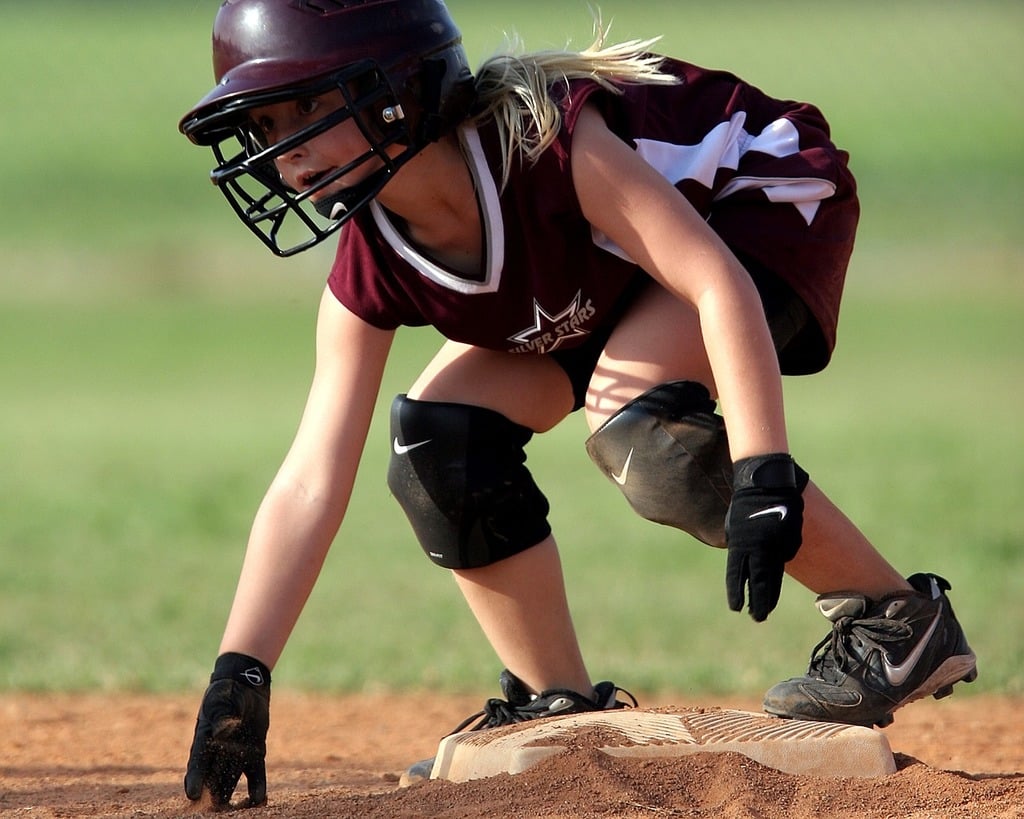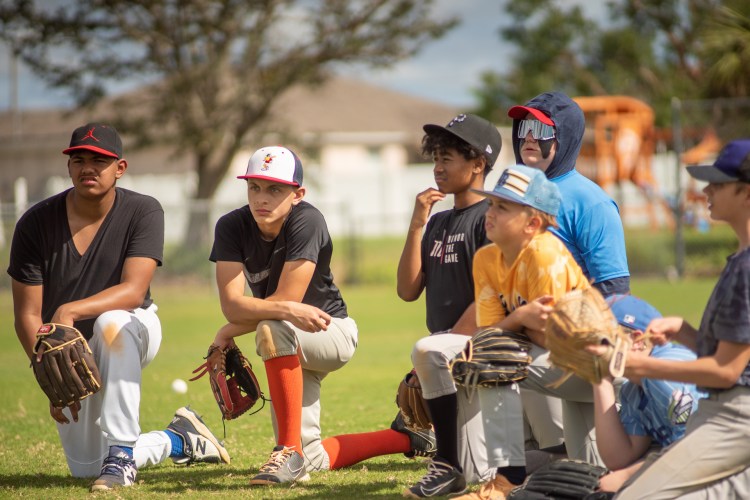Key Points
Concentration is key to success in youth baseball and can be developed with practice.
Setting realistic, achievable goals can help young players stay motivated and alert during games.
Pre-game routines can mentally and physically prepare players, leading to better focus.
Specific exercises, like the Ball Transfer Game, can train the brain to maintain concentration.
Visualization and positive self-talk are powerful tools for building a strong mental game.
Building the Mental Muscle: The Importance of Concentration in Baseball
Imagine stepping up to the plate, the crowd cheering, and the game on the line. To hit that ball, you need more than just a good swing; you need pinpoint concentration. This is why focus is a superpower in baseball. It’s the secret ingredient that can turn a good player into a great one. And here’s the good news: just like muscles, concentration can be strengthened with the right exercises and mindset.

Baseball is a game that is all about the moment. Every pitch, every swing, every play requires your undivided attention. That’s because losing focus for even a split second can be the difference between striking out and hitting a home run. So, training your mind to stay focused is just as important as practicing your swing.
Play Ball: Honing Your Tactical Mindset
Baseball isn’t solely about athletic ability; it’s also a mental game. You need to outwit the pitcher and predict the next play. Tactical mindset allows you to stay ahead of the game. It’s similar to being a detective; you’re constantly searching for hints on what’s coming next. And when you pair this with a concentrated mind, you turn into a powerhouse on the field.
Laying the Groundwork: Goal Setting and Routine Building
All professional baseball players were once children with a dream. To make those dreams come true, it’s important to set goals. Goals are like a GPS for your baseball career—they show you where you’re going and give you something to aim for. But they can’t be just any goals; they need to be SMART: Specific, Measurable, Achievable, Relevant, and Time-bound. This means setting goals that you can knock out of the park with hard work and persistence. For young athletes, understanding the principles of effective goal setting and motivation techniques can be particularly beneficial.
Setting the Bar: The Necessity of Concrete Objectives
So, how do you establish these SMART objectives? Let’s say you want to improve your batting. A goal like “I want to bat better” is a good beginning, but it’s not very specific. Instead, try something like “I will improve my batting average by 10 points this season.” This objective is specific, you can track your progress, and it’s certainly attainable with hard work.

Getting in the Zone: Pre-Game Routines for Better Focus
Let’s discuss routines. Think of them as the opening act for the main event—they’re there to set the tone for a stellar performance. A good pre-game routine primes your body and mind for the game. This might include some stretching, throwing, and perhaps a little quiet time to picture your triumphs on the field. Discover what suits you best and make it a habit. Regularity is crucial.
For instance, you might want to begin with a 10-minute stretch, then practice throwing with a partner. After that, take a moment to close your eyes and visualize yourself making amazing plays. This process will help to remove any distractions from your mind and allow you to concentrate on the upcoming game.
Brain Training: Workouts to Enhance Focus
Practicing concentration is just as important as practicing fielding and batting. There are many enjoyable workouts that can help train your brain to maintain focus. These aren’t just for baseball—they can help with academics and other sports, too!
Playing Catch with a Twist: A Fun and Engaging Concentration Exercise
A fun and engaging exercise is Playing Catch with a Twist. You will need a partner and a baseball. Stand facing each other and toss the ball back and forth, but here’s the twist: you can only toss the ball when you say your partner’s name. This fun game keeps you alert and trains you to concentrate on the task at hand.
Quiet Eye Training: Sharpen Your Vision
Another neat tip to enhance your focus is known as Quiet Eye Training. It’s all about maintaining your eyes on the target—literally. When you’re at bat, aim to keep your gaze fixed on the pitcher’s hand or the ball for as long as you can before the pitch. This method has been shown to assist with timing and hitting precision. Additionally, it’s an excellent method to train your eyes and brain to function in unison under stress.
Fun Ways to Improve Focus
There are plenty of fun ways to improve your focus. Have you ever played the game ‘Simon Says’? This game is not just for young children, it is a great way to improve your focus. When you play, you have to pay close attention to the leader and only move when ‘Simon says’. It’s a lot of fun and before you know it, you’re better at following the ball and keeping your focus during the game.
Seeing Success and Positive Self-Talk: The Mental Game of Baseball
Let’s now discuss the game that happens within your mind. Envisioning success and positive self-talk are incredibly effective techniques that can elevate your self-assuredness and performance. When you picture yourself triumphing on the field, you’re conditioning your mind to anticipate success. And when you say positive things to yourself, like “I’m an excellent batter,” you start to believe it, and then you behave like it.
Visualizing Victory: The Strength of Mental Practice
Imagine your mind as a cinema projector, and your thoughts are the film. When you picture yourself hitting the decisive home run, your mind receives the signal that you are capable of doing it. This isn’t just fantasy; it’s a method employed by professional athletes worldwide. Therefore, before your upcoming game, take a moment to shut your eyes and replay a montage of your greatest plays. It’s a game-changer.
For instance, picture yourself at the plate, gripping the bat, watching the ball hurl towards you, and then—crack!—you smack it just right. Regularly visualizing this can actually enhance your game performance because your mind and body begin to cooperate towards that achievement.
The Power of Self-Talk: Enhancing Self-Esteem through Positive Affirmations
Let’s talk about self-talk. The words you say to yourself are important. If you drop a ball and think, “I’m terrible,” what do you think will happen? You’re just preparing yourself for more errors. Instead, change the narrative. Say, “I’ll catch the next one.” This optimistic self-talk strengthens mental toughness and helps you concentrate on what you can manage—your next action.
Keep in mind, baseball is a rollercoaster of highs and lows. The top players are those who don’t let the lows get them down. They use positive self-talk to recover quickly and maintain their focus.
Game Time Tactics: From Bench to Field
When it’s time to play, all your training will be put to the test. This is where your ability to concentrate will be most evident. From the bench to the field, maintaining your focus ensures you’re always prepared, whether you’re batting or defending your position. Staying mentally engaged in the game is key, and here’s how you can achieve this.

Thinking Ahead: Anticipating Plays and Situations
One of the best ways to stay focused is to think ahead. Before each play, ask yourself, “What will I do if the ball comes to me?” or “What’s my plan if I get on base?” By having a strategy in place, you’re prepared for whatever the game throws at you. And being prepared means you’re more likely to succeed.
For example, if you’re the shortstop and there’s a runner on first, you should be prepared to make a double play if the ball comes your way. Being prepared in this way not only keeps you on your toes, but it also benefits your team because you’ll be ready to make the right play at the right time.
Teamwork Makes the Dream Work: Tips for Team Communication
One of the main ways to maintain focus during a game is to communicate with your teammates. Baseball is a team sport, and communication on the field is crucial. Whether it’s calling for a fly ball or giving signals to the pitcher, clear communication helps everyone stay focused and prevents errors.
Suppose you’re an outfielder and a fly ball is coming your way. In that case, you should shout out loud and clear to inform your teammates that you’re on it, allowing them to focus on their tasks. These small details can significantly impact maintaining focus and fostering team cooperation.
Resilience: Recovering from Errors
Let’s be real—everyone messes up sometimes. But what makes a player truly great is their ability to recover from those mistakes. Resilience is all about recovering and not letting errors shake your confidence. It’s about learning from what went wrong and preparing for your next opportunity to excel.
Learning from Mistakes: Building Mental Fortitude
Rather than viewing a mistake as a failure, consider it a lesson. Ask yourself, “What can I take away from this?” Perhaps you swung at a bad pitch. Use that as an opportunity to practice your patience at the plate. By viewing your mistakes as chances to learn, you maintain a positive attitude and a mindset geared towards betterment.
Keep in mind, even the professionals make mistakes. It’s what they do after that matters. They dust themselves off, learn from it, and get ready to go again. That’s the type of resilience that results in victories, both on the diamond and in life.
Keep Your Head in the Game: How to Refocus After Making a Mistake
We all make mistakes on the field, it’s a part of the game. But how you handle it is what really matters. You need to be able to shake it off quickly and refocus your attention. The best way to do this is to not dwell on the past. Forget about the last play and focus on the next one. Tell yourself, “I’m ready for the next ball.” This way of thinking keeps you in the game and ready to make a great play to make up for the mistake.
One more piece of advice is to utilize a reset signal. This could be a physical gesture, such as tightening and then relaxing your glove, which signals to your brain that it’s time to refocus. It’s a straightforward technique that can assist in decluttering your mind and getting you back on track.
Common Questions and Answers
To conclude this guide, we will address some frequently asked questions about focus in youth baseball. The answers to these questions will provide you with extra techniques and knowledge to assist young players in improving their mental game.
How can I assist my child in improving their baseball concentration?
To assist your child in improving their concentration, motivate them to set minor, attainable concentration goals for each game or practice. For instance, “I will keep my eye on the ball each time I’m at bat.” Also, incorporate concentration drills into their regular practice routine. And remember to compliment their attempts to stay concentrated, not just their performance outcomes.
How can you tell if a young player is not paying attention?
Repeated mistakes, seeming bored or distracted, and not being prepared when the ball is in play are all indications that a player is not paying attention. If you see these signs, it may be time to take a break or have a talk to help them refocus.
Can you do any focus drills at home?
Indeed, there are numerous focus drills that can be performed at home. A basic exercise is the ‘coin catch,’ in which a partner drops a coin and the player must catch it between their fingers. This drill aids in the improvement of reaction time and concentration. Another is the ‘card memory game’, which uses a deck of cards to enhance visual focus and memory.
How frequently should my kid practice baseball-specific focus drills?
Your kid should practice focus drills a few times a week, incorporating them into regular baseball practice. Regularity is crucial, but ensure to keep the drills diverse and enjoyable to sustain engagement and effectiveness. For a comprehensive guide on effective training, check out our resources.
Include concentration exercises in your routine 2-3 times a week.
Integrate these exercises into your regular training sessions.
Switch up the exercises to keep them from becoming monotonous.
How does diet and sleep affect a young athlete’s ability to concentrate during games?
Proper nutrition and sufficient sleep are vital for staying focused during games. A well-fed brain works more effectively, and sleep aids in memory and concentration. Promote a balanced diet with lots of hydration and make sure your young athlete gets enough sleep every night.
How can players deal with the stress of competitive play?
Players can deal with stress by focusing on the process rather than the outcome. Encourage them to take deep breaths, stay present, and concentrate on what they can control. Remind them that it’s just a game, and the most important thing is to try their best and enjoy themselves.
Do mental focus exercises help players in other parts of life?
Definitely! The concentration skills developed through baseball can be used in other areas of life, such as school and personal relationships. The discipline and focus learned on the diamond are valuable life skills that will serve young players well in many future endeavors.
Leave a Reply